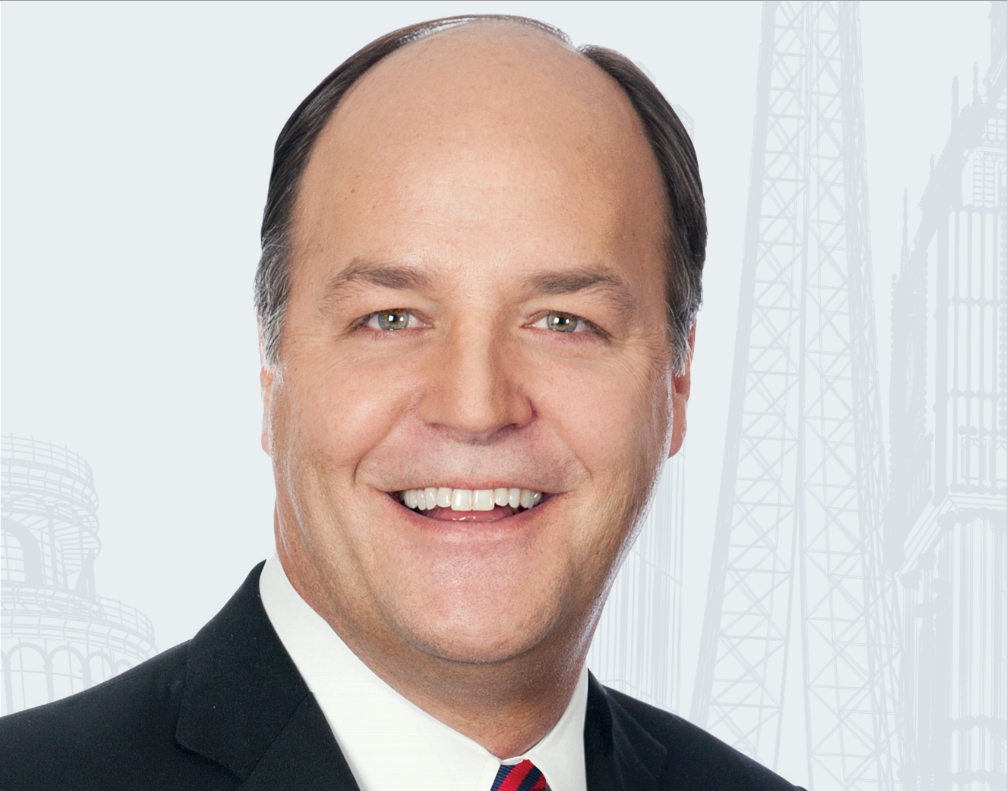Against a backdrop of rising trade tensions, BlackRock Investment Institute’s 2018 Midyear Investment Outlook remains pro-risk, but it has partially tempered that stance given the uneasy equilibrium that BlackRock perceives between rising macro uncertainty and strong earnings. On July 19th, at the Mandarin Oriental Hotel in Miami, Terry Simpson, Multi-Asset Investment Strategist of BlackRock’s Global Investment Strategy Team, discussed the macroeconomic environment and how investors should position their portfolios with investment professionals from the Latin American and US offshore business.
According to Simpson, a year ago, the global economy was facing a very different scenario: a very favorable environment brightened by synchronous global growth with still relatively high levels of monetary accommodation, in which everything was going well and there was an abnormally low volatility. But, these conditions have shifted, and the BlackRock Investment Institute is debating whether there is a new market regime change.
BlackRock’s base scenario sees strong US growth extending positive spillover effects to the rest of the world, sustaining the global economic expansion. The corporate tax reform has fueled US earnings surprises. However, the range of possibilities for the economic outlook has substantially widened due to US-China trade war tensions and tighter financial conditions via rising US rates and stronger dollar. This greater uncertainty argues for building greater resilience into portfolios.
Fiscal stimulus spurs US growth
With fiscal stimulus, US companies are rewarded for accelerating their expending on capex, something that could lift potential growth. According to the data provided by the Duke-Fuqua CFO Survey, the Deloitte CFO Signals survey and an average of regional Fed surveys, there is a notable pick-up in expected capex relative to two years ago. Over the next 12 months, capital spending is expected to grow about five times as much, as compared to first quarter 2016 projections.
The S&P 500 first-quarter earnings results confirmed US companies were investing at multi-year highs. “One of the struggles of this economic recovery is that it has yielded a subpar amount of capital expenditures or investment. Now, the government is willing to help finance business capex intentions, and firms are eager to invest. This could potentially extend the current business cycle as some supply side stimulus that may be very beneficial for changes on the potential GDP growth of the US economy”, explained Simpson.
“Developed market capex cycles are very beneficial for emerging markets. Specifically, it could be very beneficial for the Asian region, due to their dependency on global trade”, he added.
The range of possibilities for the economic outlook is widening
This year, the most significant development in the macro environment has been a rising dispersion in consensus forecast for US GDP growth. Economists see a wider range of potential outcomes for future economic growth, as the tails (outliers) of the distribution of the expected GDP growth have widened. On the upside, there is a chance for U.S. stimulus-fueled surprises. On the downside, that same stimulus could spark economic overheating. Resulting inflationary pressures could prompt a quicker pace of Fed tightening and bring forward the end of the current business cycle. Any further escalation in the US-China trade war also could have a knock-on effect on business confidence, hitting growth.
“Last year, forecasters were optimistic due to tax reform and fiscal stimulus. Now in 2018, forecasts have been reduced, something which could have a negative effect on sentiment, both business and households” he stated.
With higher U.S. short rates has come dollar strength
The rising cost of US dollar financing has hurt Emerging Markets (EM), especially those dependent on external funding. “We all know the relationship between the dollar and emerging market assets, there is high sensitivity. The latest episode is proof that when the dollar rises, EM assets are tested. EM local debt and equities have gone down in aggregate. But there have also been idiosyncratic stories in places like Argentina and Turkey. But these are countries that have significant current account deficits. They are going to be challenged whenever the external cost of financing goes up. Regional and country selection is needed and can enhance investing outcomes that have relied on making an aggregate beta call on EM”, said Simpson.
According to the expert, some of this tightening on financial conditions has created new opportunities. Higher US rates have led to a renewed competition for capital and there is less need to search for yield as US dollar-based investors can get above inflation returns in short-term debt -as of midyear, the two-year Treasury was around 2,5%. The result is a higher risk premium all around. This repricing of risk free rates has made selected hard-currency EM debt look attractive again, both relative to EM local debt and to other alternatives, such as developed market credit.
“Emerging market dollar debt has widened out much more meaningfully, whereas local currency has widened out but not as much as the dollar-based debt. The historical yield advantage of local over hard currency EM debt has vanished”.
According to BlackRock, there is a case for favoring hard-currency EM debt over US credit, yet the firm remains neutral across both. The spreads have tightened in the latter asset class, paced by the outperformance of the riskiest portions of the market. Wider spreads in EM debt make valuations more attractive. They also see floating-rate bank loans having an edge over high yield bonds, given their lower duration and that they can benefit from rising income as short rates reset higher.
“We believe the Fed will raise rates four times total this year. The Fed has expressed their concern about trade tensions, but at the same time they are aware that the US economy is operating above potential. The U.S. economy is creating 200,000 jobs per month on average for the last 36 months, that is something very interesting in this given the duration of this economic cycle”.
More volatility
Global financial conditions are tightening as US rates rise. Monetary policy is shifting, with the Fed pushing on with normalization and the European Central Bank (ECB) set to wind down its asset purchases by year-end. Additionally, US-China trade tensions have added new worries to the market. However, BlackRock still has a very positive risk stand stance, valuations have corrected enough in global equities and with 2018 earnings across the global coming in positively, there is still room to maintain equity exposure with a preference of equities over bonds.
“Most global investors are still positive on equities over bonds, even with all the risks the market is facing this year. According to EPFR funds flows, investors are putting more money in the equity funds than in bond funds. In 2018, we are seeing negative Sharpe ratio on a traditional 60/40 global portfolio, with higher volatility and negative returns. Going forward we are going to maintain risk on in our portfolios, but there is a need to adjust client expectations; it is unlikely we obtain the same returns that we gathered over the last few years of this bull market. Meaning, we now have to think where we want to take the risk in our portfolios”, he said.
Commodities
Oil prices are still at good levels, though they have already decreased a 10% from their recent peaks. Most of the worry was whether the OPEC was going to deliver a tremendous amount of supply back into the market, but BlackRock maintains their base scenario of global oil inventories remaining in a deficit into year-end; from a fundamental supply-demand view they do not think there is enough oil production to add back. In the next six months. If this view proves correct, oil prices should remain supported at these levels.
The metals picture looks a bit different. Copper prices, considered a barometer of global growth along with other industrial metals, have weakened on slowing global growth momentum and global trade tensions that are likely to persist for a while.
Allocation
BlackRock sees factors like momentum in equities outperforming, giving preference to quality exposure. They prefer US equities over other regions, as US stocks have outpaced other global markets on strong earnings growth, but they are also positive on Emerging Markets Equities, particularly on Asian equities including China. They are also neutral on Japan and underweighting Europe.
In fixed income, they are favoring short-term bonds in the US and taking a bias towards quality in credit. They are favoring Emerging market debt denominated in dollar versus local currency and selected private credit and real assets for diversification.











